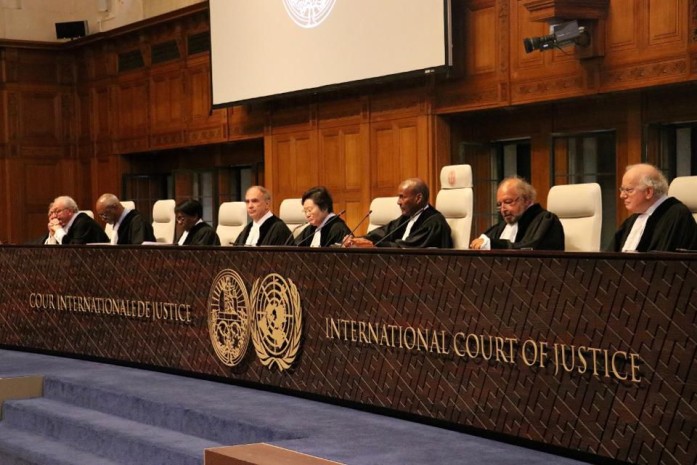
Forbes 17/08/2018

THE HAGUE, NETHERLANDS - JULY 23: An inside view of International Court of Justice in The Hague, Netherlands on July 23, 2018. Photo: Forbes
Having utterly failed in its efforts to enforce a fraudulently obtained multi-billion-dollar judgment against Chevron in the domestic courts of United States, Canada, Brazil, Argentina and Gibraltar, Ecuador is now on the defensive before international tribunals.
On August 7, Ecuadorean State Attorney General Iñigo Salvador admitted that the Chevron case will likely end in legal defeat as it makes its way through international arbitration panels. “Unfortunately, it’s most probable that we’ll lose the case,” said Attorney General Salvador. He added that “despite the publicity, propaganda and communications campaigns about an issue, an international court ultimately prioritizes other considerations. The money used in all of those campaigns just ends up being money lost.” Those "other considerations" include things like the law and the facts, both of which bolster Chevron's counter-attack against Ecuador.
What is going on here? Why has Chevron sued Ecuador? This column has exhaustively detailed the tragedy of the suit against Chevron. This is the petroleum company's counter-attack. Herewith a primer on the international arbitration proceeding pursuant to the US-Ecuador Bilateral Investment Treaty (BIT), which entered into force in 1997.
What is a BIT? A Bilateral Investment Treaty is an agreement between two countries that protects private investors from one country who make investments in the other. In general, the country where the investment is made (or “host State", here, Ecuador) agrees that it will accord their investments “fair and equitable treatment.” Under a BIT, the host State commits to allow investors from the other State (here, Chevron) to sue it in an international forum in the event investors believe the host State has breached its obligations. This is referred to as a BIT arbitration. BIT arbitration vests jurisdiction in a neutral forum in which to resolve disputes between the host State and an investor of another State, and helps to level the dispute resolution playing field. If an investor submits a claim to arbitration, the parties constitute a tribunal with one member nominated by the claimant, a second nominated by the host State, and a presiding arbitrator selected by the other two arbitrators.
Read more here
Fuente OriginalNotas relacionadas